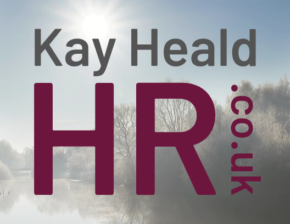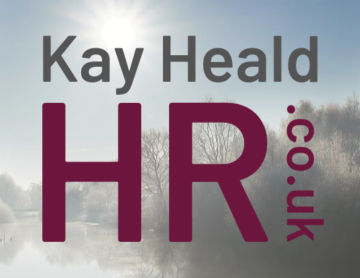EMPLOYMENT HELP FOR THE VERY BUSY – Winter/Spring Newsletter 2015
Welcome to my first Newsletter of 2015. Yes, more legislation, but I’m here to help, so please be reassured that I’ll be doing all I can to interpret and translate what is most relevant to you and your business!
Fit for Work (December 2014)
This initiative was launched last month to provide health and work advice to employees, employers and GPs, to help people return to or stay in work after an illness. Their referral service is designed to work alongside other occupational health providers. The free advice line is: 0800 032 6235.
Kay’s comment: GPs will be encouraged to make early referrals, but employers can only make referrals after absences of four weeks. Employees will not be allowed to refer themselves. Find out more via this link: http://fitforwork.org/employer/
Shared Parental Leave (5th April 2015)
Shared Parental Leave (SPL) is available for babies due on or after 5 April 2015. A woman, who is eligible for shared parental leave has the right to bring her maternity leave and pay period to an end early and convert the outstanding period of maternity leave and pay into a period of SPL and pay that can be taken by either parent. SPL can be taken in a more flexible way than maternity leave. It does not have to be a single continuous period; leave periods can be as little as a week and both parents can be absent from work at the same time.
Kay’s comment: SPL will also be open to those adopting, if they have a matching date on or after 5th April 2015. Statutory Adoption Pay and other rights will also match those of Maternity from 5th April 2015. The mechanics of SPL can be complicated, so I do recommend you seek early advice and keep this link to hand:
https://www.gov.uk/shared-parental-leave-and-pay-employer-guide
Statutory Rate Changes (5th April 2015)
Statutory Sick Pay will increase from £87.55 to £88.45 per week.
Statutory Maternity, Paternity and Adoption Pay increases from £138.18 to £139.56 per week.
Also, employer national insurance contributions for workers aged under 21 who earn up to £42,285 (the upper earnings limit for higher rate tax, or Upper Secondary Threshold) will be abolished.
Tax-Free Childcare (1st September 2015)
Families where both parents work and each parent earns over £50 per week, but no more than £150,000 per year will be eligible to receive 20% off their yearly childcare costs (up to £2,000 for each child). The scheme will initially apply to parents with children aged under five, but this will be extended to parents with children aged under 12 within the first year.
Kay’s comment: Have a look at this Gov.UK link, which helps to explain the new scheme in more detail:
https://www.gov.uk/government/news/tax-free-childcare-10-things-parents-should-know
Calculating Holiday Pay
Based on last year’s rulings, regardless of work patterns, employees should receive holiday pay based on a week’s ‘normal remuneration’ (not just basic pay). Therefore relevant allowances, commissions or overtime will need to be reflected in future calculations, but not discretionary payments such as some bonuses.
Kay’s comment: The Government is still assessing the likely impact on UK businesses, but, in the meantime, if you are concerned about whether this change is likely to affect you and your employees, please contact me.
Please Note: The information contained in this e-newsletter is provided for your general use only. It should not be treated as a substitute for obtaining professional employment advice on specific issues.


